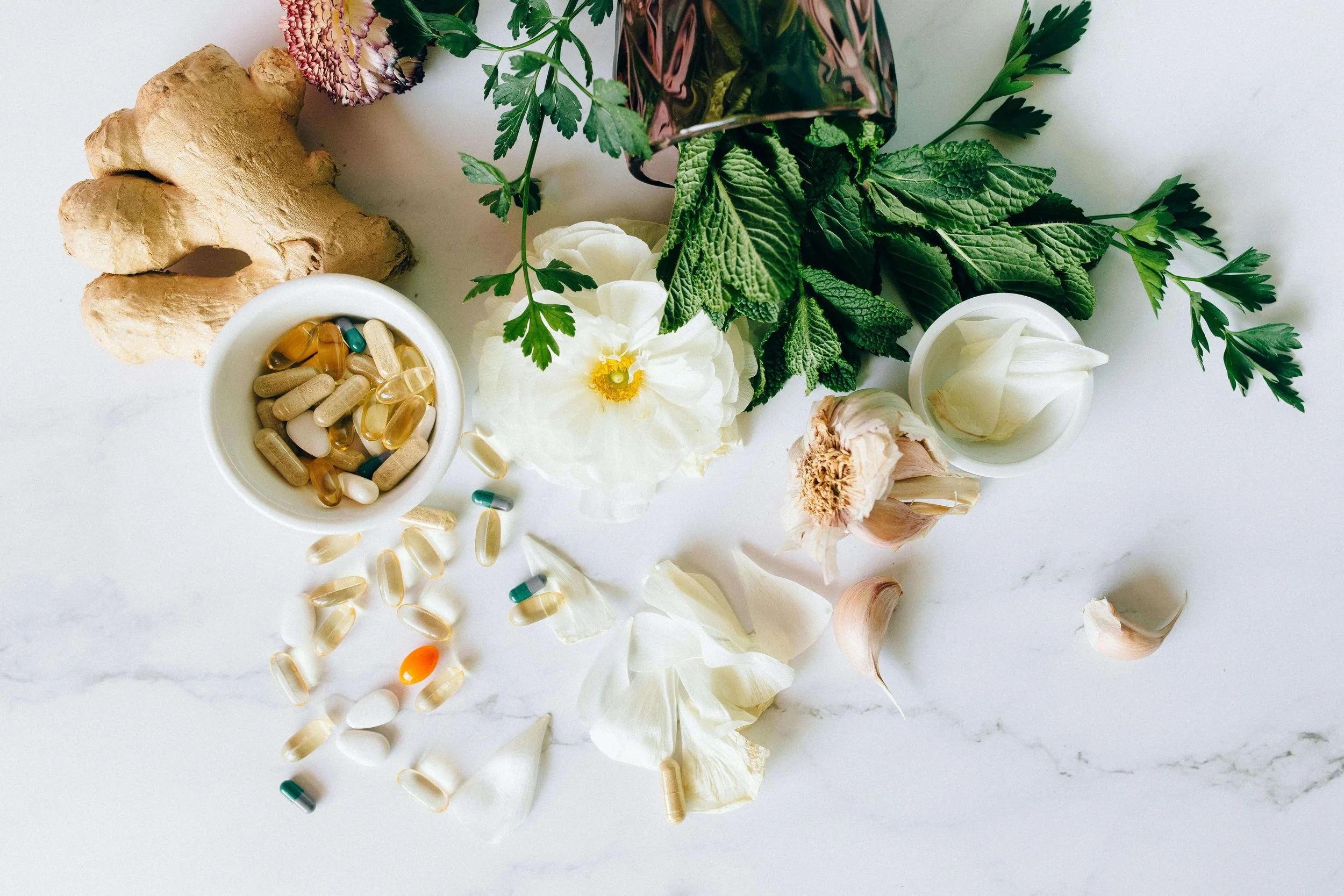
Herbal Medicine in Vancouver
Herbal medicine is one of the oldest forms of healing on the planet—what many call the original medicine. Unlike pharmaceutical drugs that often target a single receptor or pathway, herbs are inherently holistic. No herb does just one thing. Their multi-directional actions support the body’s natural intelligence and capacity to heal, making them powerful allies in integrative healthcare.
Naturopathics
How Naturopathic Doctors Use Herbal Medicine
Naturopathic doctors in BC are trained in the use of Western botanical medicine. Their education includes several years of study in the therapeutic use of herbal medicine including pharmacognosy (the study of plant-based compounds), herbal safety and interactions, dosing, and formulation. NDs learn to integrate herbs with modern diagnostics and evidence-based practice, ensuring safe and effective use tailored to individual patient needs. This training is rooted in both traditional knowledge and modern clinical research.
Clinical Applications of Western Herbal Medicine
Herbs can be used to support a wide range of health concerns. For stress and burnout, adaptogens such as rhodiola and ashwagandha help regulate cortisol and build resilience, while calming nervines like passionflower and skullcap support the nervous system. In women’s health, herbs like vitex and black cohosh are used to regulate hormones, relieve perimenopausal symptoms, and ease painful periods. During cold and flu season, immune-supportive herbs such as echinacea, reishi, and thyme can enhance immune function and fight infection. For digestive health, herbal bitters, demulcents, and liver-supportive herbs like dandelion, marshmallow root, and milk thistle improve digestion, reduce inflammation, and support detoxification pathways.
Traditional Chinese Medicine
Chinese Herbal Medicine
Traditional Chinese Medicine (TCM) views the body as an interconnected system where balance and flow are essential for health. Chinese herbal medicine has been used for thousands of years to restore harmony within this system, drawing on a vast pharmacopeia of plant, mineral, and animal-based substances. Rather than targeting symptoms in isolation, TCM practitioners select customized herbal formulas based on patterns of imbalance unique to each individual. These formulas are often refined over time to reflect changes in the patient’s condition.
Clinical Applications of Chinese Herbal Medicine
Chinese herbal medicine addresses a wide range of health concerns by restoring internal balance and supporting the body’s innate healing capacity. For stress, anxiety, and sleep issues, formulas are used to calm the shen (spirit), nourish the Heart, and regulate the flow of Qi. In women’s health, herbs are selected to regulate menstrual cycles, ease PMS, support fertility, and smooth the transition through menopause by tonifying Blood and harmonizing hormones. For digestive issues, formulas may strengthen the Spleen, move Liver Qi, and clear Dampness to relieve symptoms like bloating, indigestion, or irregular bowel movements. Chinese herbs are also widely used to support the immune system, resolve lingering pathogens, and promote recovery from colds, flus, and post-viral fatigue.
Ways to Use Herbal Medicine
Herbs can be used in a variety of forms depending on the condition being treated, the desired potency, and patient preference:
Tinctures
Alcohol-based liquid extracts. Fast-acting and convenient for precise dosing.
Teas & Infusions
Ideal for calming, hydrating, and drawing out water-soluble constituents.
Capsules or Powders
Useful for taste-sensitive individuals or when higher therapeutic doses are needed.
Culinary Use
Herbs like garlic, turmeric, rosemary, and ginger support digestion, immunity, and inflammation through daily meals.
Topical Applications
Oils, salves, poultices, and compresses for skin conditions, muscle pain, or localized infection.
Tinctures
Alcohol-based liquid extracts. Fast-acting and convenient for precise dosing.
Teas & Infusions
Ideal for calming, hydrating, and drawing out water-soluble constituents.
Capsules or Powders
Useful for taste-sensitive individuals or when higher therapeutic doses are needed.
Culinary Use
Herbs like garlic, turmeric, rosemary, and ginger support digestion, immunity, and inflammation through daily meals.
Topical Applications
Oils, salves, poultices, and compresses for skin conditions, muscle pain, or localized infection.
Explore Further Reading
Frequently Asked Questions
-
Western herbal medicine, practiced by Naturopathic Doctors, often focuses on the biochemical properties of individual herbs. It’s rooted in evidence-based science and modern diagnostics, with herbs used to support specific systems or conditions.
Chinese herbal medicine, practiced by TCM practitioners, is based on thousands of years of clinical tradition. Rather than treating isolated symptoms, Chinese formulas address underlying patterns of imbalance, using combinations of herbs tailored to the individual’s constitution and presentation.
-
Yes—when prescribed by a trained practitioner. Naturopathic Doctors and TCM practitioners are both extensively trained in herbal safety, interactions, and appropriate dosing. They take into account your medications, health history, and sensitivities to ensure safe, effective use.
-
Herbs may be given as tinctures (alcohol-based extracts), teas, powders, capsules, or topical applications in Western practice. In Chinese medicine, common forms include decoctions (boiled teas), granules (powdered extracts), and classic patent pills. Your practitioner will recommend the best form based on your condition and preferences.
-
That depends on your condition and goals. Some formulas provide acute symptom relief within days, while others are taken over weeks or months to address deeper imbalances. Your practitioner will guide you through the process and adjust as needed.





